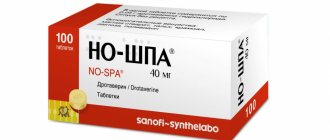The text is presented for informational purposes only. We strongly urge you not to self-medicate. When the first symptoms appear, consult a doctor. We recommend reading: “Why you can’t self-medicate?”
Contrary to popular belief, meningococcal meningitis is not a cold. That is, you cannot protect yourself from the disease by wearing a warm hat. Inflammation of the meninges, which is what meningococcal meningitis actually is, is an infectious disease that is easily transmitted by airborne droplets. But preventing the disease is quite possible. The best method of prevention is vaccination against meningococcal infection.
Vaccine options
There are three types of vaccines available to combat this disease.
- Polysaccharide vaccines have been available to prevent meningococcal disease for more than 30 years. Meningococcal polysaccharide vaccines designed to combat the disease are bivalent (groups A and C), trivalent (groups A, C and W) or quadrivalent (groups A, C, Y and W135).
- It is impossible to develop polysaccharide vaccines against group B bacteria due to antigenic mimicry with polysaccharides in human neurological tissues. Therefore, group B vaccines, used in particular in Cuba, New Zealand and Norway, were outer membrane protein (OMP) and were intended to combat epidemics caused by specific strains. Other universal group B protein vaccines are in the final stages of development.
- Meningococcal group C conjugate vaccines have been available and widely used since 1999. Since 2005, quadrivalent group A, C, Y, and W135 conjugate vaccines have been licensed for use in children and adults in Europe, Canada, and the United States. The new group A meningococcal conjugate vaccine, introduced in 2010, has a number of advantages over existing polysaccharide vaccines: it produces a stronger and more durable immune response to group A meningococcus; reduces the carriage of bacteria in the throat. It is expected to provide long-lasting protection not only to vaccinated people, but also to family members and others who would otherwise be exposed to meningitis. The vaccine is available at a lower cost than other meningococcal vaccines; it is expected to be particularly effective in protecting children under two years of age who do not respond to conventional polysaccharide vaccines.
The following names of vaccines are used: polysaccharide - meningococcal group A vaccine, polysaccharide dry, polysaccharide meningococcal vaccine A+C, Meningo A+C, Mencevax ACWY and Menugate (conjugated tetravalent, against ACWY serotypes) and Menactra (conjugated tetravalent, against ACWY serotypes).
Vaccination is especially indicated for the following groups at high risk of meningococcal disease:
- persons who had direct contact with patients infected with meningococci of serogroups A, C, Y or W-135 (in the family or in closed institutions);
- persons with deficiency of properdin and complement components;
- persons with functional or anatomical asplenia;
- persons with cochlear implants;
- tourists and persons traveling to hyperendemic areas for meningococcal disease, such as sub-Saharan Africa;
- employees of research, industrial and clinical laboratories who are regularly exposed to N. meningitidis in aerosol-forming solutions;
- students of various universities, and especially those living in dormitories or apartment-type hotels;
- conscripts and new recruits.
It should be added that the European Commission has currently approved the drug Bexsero, produced by the Swiss pharmaceutical company Novartis, intended to protect patients of all age groups, including children over two months, from meningococcal infection serogroup B.
Post-vaccination complications
Post-vaccination complications, unlike adverse reactions, are much more complex and can have serious consequences. But they also occur much less frequently - approximately one case per million vaccinations. At the same time, it would not be amiss to recall that similar complications in the case of a disease that the vaccine protects against occur hundreds of times more often.
Causes of complications
There are three main groups of causes of complications after vaccination:
- The reactogenic properties of the vaccine depend on its components, the immune activity of the drug, changes in the properties of the vaccine strain, and contamination of the vaccine. The most reactogenic are DTP and BCG, the most “heavy” drugs are used in vaccines against rubella, mumps, hepatitis B, and polio.
- Features of the body : hidden pathologies that can worsen due to the body’s reaction to the vaccine, the body’s tendency to allergies, autoimmune pathologies, weakened immunity and more.
- Violations of vaccination technique by medical workers, unfortunately, are one of the most common causes of complications after vaccination: incorrect dosage, poor sterilization, incorrect immunization technique or instructions were violated, the wrong solvent was used, the vaccine was incorrectly diluted or not mixed, improper storage, contraindications were not taken into account.
Types of post-vaccination complications
All possible complications after vaccination can be divided into several groups:
- The body's reaction to the vaccine components:
- acute allergies: anaphylactic shock, urticaria, Lyell's and Stevens-Johnson syndromes, Quincke's edema; with timely assistance, as a rule, it does not leave consequences;
- a few hours after vaccination, usually DTP, the child begins to cry loudly and squeal: it’s hard to listen to, but after 3 hours it goes away and does not pose a danger to the baby;
- after 1-3 hours, severe muscle weakness may occur, which quickly goes away.
- Reactions due to poor quality of the vaccine, usually caused by violation of the rules of its storage and transportation:
- the declared immunity is never formed;
- more noticeable local reactions;
- if the sterility of the vaccine is compromised, abscesses, cellulitis or other acute inflammatory changes may occur.
- Post-vaccination complications (PVC) are often associated with violations of vaccine administration technology and violation of asepsis rules: they can lead to purulent-inflammatory diseases. If the BCG vaccine is administered subcutaneously rather than intradermally, a cold abscess develops. When the vaccine is administered into the gluteal muscle instead of the tibial or deltoid muscle, there is a risk of injuring the sciatic nerve or getting inflammation of the subcutaneous fatty tissue. Failure to comply with the rules of asepsis threatens with acute general or local inflammation. And if you inject a vaccine intended for oral administration, pronounced local or general reactions are possible.
- Administration of a vaccine may cause the disease for which it is intended.
- Severe complications can be caused by immunodeficiency in children: meningitis, vaccine-associated polio or encephalitis, BCG osteomyelitis, BCG infection. Fortunately, even with a weakened immune system, such complications are extremely rare. And most importantly: without vaccination, complications after an infection may be more pronounced and have an unfavorable prognosis.
The following describes possible complications after specific vaccinations - all of them are described in detail in the instructions for the drugs for the diseases listed below:
- Hepatitis B rarely causes a temperature above 39 degrees, general reactions (nausea and vomiting, headache, weakness, arthritis), skin rash, optic neuritis and some others.
- DTP vaccine has a high risk of complications and allergic reactions. The most dangerous component of the vaccine is pertussis, which can affect the brain. But the DPT variety, the ADSM vaccine, does not contain a pertussis component, so adverse reactions from it, not to mention complications, are extremely rare. General reactions to DPT - temperature 38-39 degrees, local - pain, redness or thickening, possible severe complications: strong crying of the child, turning into a squeal, temperature up to 40 degrees, vomiting, convulsions, post-vaccination encephalitis, neuritis, polyradiculoneuritis, skin allergic manifestations .
- The only serious consequence of the OPV vaccination against polio is vaccine-associated polio, but it is extremely rare, and even then usually due to a background of immunity deficiency.
- After vaccinations against measles, rubella and mumps, serious complications are very, very rare: thrombocytopenia, pneumonia, one-sided deafness, panencephalitis.
- Possible reactions to the BCG vaccine against tuberculosis :
- local: scar, ulcer, cold abscess, regional lymphadenitis;
- osteitis, lymphadenitis, extremely rarely - allergic vasculitis or lupus erythematosus;
- very rarely, children with T-cell immunodeficiency may develop a generalized BCG infection;
- allergic reactions: rash, erythema nodosum, granuloma annulare, rash, anaphylactic shock, secondary infection.
Principles and purposes of vaccination
Meningococcal disease is potentially fatal and should always be treated as a medical emergency. Meningococcal meningitis occurs in small clusters worldwide, with seasonal variations and a varying percentage of epidemic bacterial meningitis cases.
Meningococcal meningitis is a bacterial form of meningitis, a serious infection that affects the lining of the brain. It can cause severe brain damage and, if left untreated, is fatal in 50% of cases. But even when diagnosed early and treated properly, up to 16% of patients die, usually within 24 to 48 hours of symptoms appearing.
It is important to remember that there are endemic areas of meningococcal infection in the world, the so-called meningitis belt of Africa (sub-Saharan Africa, stretching from Senegal in the west to Ethiopia and Egypt in the east). High incidence is observed in Canada, with outbreaks occurring in France and the USA. Students of closed educational institutions and colleges are especially vulnerable.
How to diagnose meningococcal infection?
With a mild form of the disease, it can be quite difficult to distinguish it from ARVI. That is why it is important to consult a doctor in a timely manner in case of even a not very serious (in your opinion) ailment! Nasopharyngitis may develop into a more severe form in a few days, and precious time will be lost.
In the case of fulminant development of meningococcemia, the main symptoms are a sharp rise in temperature and a rash. Contact an ambulance immediately, this is critically important to do as soon as possible!
Vaccine effectiveness
Vaccination is carried out once, the effectiveness is about 90%, immunity is formed on average within 5 days and lasts 3-5 years. In December 2010, a new meningococcal group A conjugate vaccine was introduced throughout Burkina Faso and parts of Mali and Niger, where a total of 20 million people aged 1–29 years were vaccinated. Subsequently, in 2011, these countries reported the lowest ever number of confirmed cases of meningitis A during the epidemic season. Immunization with polysaccharide vaccines leads to a rapid rise in antibodies, which persist in children for at least 2 years, and in adults - up to 10 years; revaccination is carried out every 3 years. Conjugate vaccines maintain immunity for 10 years and develop immunological memory.
WHO recommends polysaccharide vaccines A and C for persons over 2 years of age from risk groups, as well as for mass vaccination during an epidemic - both for individual protection and to create collective immunity and reduce carriage. A type C conjugate vaccine has been created and used in Europe, which has led to a sharp decrease in the incidence of meningitis C; England, Holland and Spain have included this vaccine in their calendars.
The effectiveness of meningococcal vaccine was also assessed in post-registration studies. Thus, in the fight against an outbreak of meningococcal infection in the United States, 36 thousand people aged 2 to 29 years were vaccinated. As a result of the case-control study, 85% effectiveness was revealed, and among children from 2 to 5 years old it was 93%.
Reviews from parents
- Anna, 38 years old.
Both I and the child were vaccinated. There were no allergic reactions. All colds go away as usual. A child gets more flu every three years. We went to get vaccinated because my aunt died of meningitis at the age of five. There is nothing wrong with this, the main thing is to choose the right drug for injection.
- Natalya Nikolaevna, 34 years old.
A year ago, our child suffered from a complex form of the disease, after recovery, the doctors recommended ART-Hib to us, they did it, but we began to get sick even more often. We manage to go to kindergarten for two days, but then we usually go on sick leave for 2-3 weeks. After a detailed examination, the doctor discovered that my daughter is a carrier of Haemophilus influenzae.
- Tatyana, 39 years old.
I also gave my daughter DPT + hemophilus. I thought for a long time whether it was worth getting vaccinated, but I finally decided. We chose the paid option because the medicine is easier to tolerate. By the way, the child began to get sick less often and more easily. Previously, we went to kindergarten for several days, and spent the rest of the time on sick leave. Now it's the other way around. I think that the injection for Haemophilus influenzae helped us, but I don’t presume to say anything.
Post-vaccination reactions
Vaccines against meningococcal disease are well tolerated. In 25% of vaccinated people, a post-vaccination local reaction is possible in the form of soreness and redness of the skin at the injection site. Sometimes there is a slight increase in temperature, which normalizes after 24-36 hours. These vaccines are not required for routine immunization in our country, but you need to know about them, especially for those parents whose child is at high risk of developing meningococcal infection, or those who are planning a vacation in countries with unfavorable conditions for the spread of this infection.
WHAT IS MENINGITIS DANGEROUS?
Meningitis is an inflammation of the membranes of the brain or spinal cord of infectious origin. The disease is characterized by rapid development - in the absence of medical care, the patient may lose vision and hearing within 24 hours. The cause of meningitis is the introduction of Haemophilus influenzae, meningococcus, and pneumococcus into the brain with blood. In newborns, the causative agent of infection can also be Escherichia coli, Klebsiella, and Enterococcus. Important! Meningitis in 60% of cases is of a viral nature; in such cases, the infectious process is provoked by the Coxsackie or ECHO viruses.
When to vaccinate?
Domestic vaccines - meningococcal A, A + C - are used from 18 months, and are also administered to adolescents and adults. These drugs can also be administered to children under 18 months of age if there is a sick person in the family or depending on the epidemic situation in the region. However, this measure does not create long-term, lasting immunity, and vaccination must be repeated after 18 months. Polysaccharide vaccines "Meningo A+C" and "Mencevax ACWY" are administered to children from 2 years of age. For vaccination of children over 9 months of age, the conjugate vaccine "Menactra" can be used, in this case it is prescribed twice with an interval of at least 3 months, and after 2 years is done once. The level of protective antibodies lasts up to 10 years.
WHO NEEDS IMMUNIZATION?
The infectious disease is more common in childhood, which is associated with an imperfect immune system. Meningitis is diagnosed in adults against the background of immunodeficiency states: elderly people, HIV-infected people, during chemotherapy. Therefore, vaccination against meningitis is indicated for the following groups of patients:
- Children who were born prematurely;
- Children and adults who have frequent seasonal respiratory infections;
- Children under 2 years old;
- Families with more than 1 child;
- Children who have been bottle-fed or mixed-fed since birth;
- Patients with advanced dental pathologies;
- A history of recurrent bronchitis, pneumonia, otitis, sinusitis;
- Medical and laboratory staff;
- Children who regularly attend children's groups (kindergarten, early development groups, dances);
- Patients with severe immunodeficiency conditions (HIV-infected, cancer patients);
- Conscripts and students who will live in the dormitory;
- People with severe cardiovascular pathologies;
- Travelers and tourists who go to regions with a high probability of infection;
- Patients who have had their spleen removed or have anatomical defects of the skull;
- People who have been in contact with infected patients or carriers of meningococcal infection, Haemophilus influenzae.
The meningitis vaccine is also recommended for women who are planning a pregnancy. Important! Vaccination against meningitis in children helps reduce the risk of developing acute respiratory infections. Therefore, vaccination is indicated for children who are often ill. In many developed countries, vaccination against meningitis has become mandatory, which has made it possible to almost completely overcome the infection. Vaccination against meningitis is not included in the National Vaccination Calendar in Russia.











